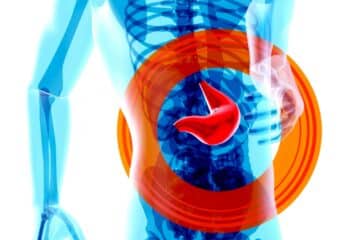As the current pandemic continues to unfold worldwide, more and more people are becoming concerned with strengthening their immune systems. The web is awash with nifty supplements or special practices that promise immediate immune boosting powers. The truth is that your body—when given vibrant, healthy foods, adequate water and sleep and simultaneously protected from harmful chemicals and overwhelming foods—is capable of maintaining a strong immune response. There are really no magic pills or potions that can replace a balanced diet.
In Oriental medicine, we know that the immune system is the result of healthy organ system function – mainly what we call the Spleen and Lung systems. In our understanding Spleen is (with the Stomach) the organ responsible for deriving nutrients from our foods. It has a close relationship with the Lungs, via the creation and distribution of fluids in the body. (A more complete explanation of this can be found in our July 13, 2019 article “How Does Your Immune System Work?” and February 12, 2019 article “Fluid Metabolism”) The body is able to repel “invaders” when the first line of defense Lung system is strong and maintained well by its partner Spleen system. Spleen – as digestion – is strongly dependent on us giving it good quality, clean nutrition to process.
Diet and food as medicine have always been one of the branches of Oriental medicine. (see our article “The Five Branches” from May 4, 2017 for more details). There have been entire schools of study in our history based on dietary recommendations for building health and immune function. There’s an old saying: “With proper diet medicine is not needed, without proper diet medicine is of no use.”
Western medicine also views diet as vital in building health; new understanding of how our immune system is generated and functions is pointing toward a healthy diet as vital in this process.
“Gut microbiome” (plain English: beneficial bacteria) in our intestinal walls are now understood as major players in a healthy and balanced functioning immune system. A recent study article published by the NIH states “It is now evident that the gut microbiota has a profound effect on the host immune system and can affect autoimmune-related diseases both within and outside the gut.” https://www.ncbi.nlm.nih.gov/pmc/articles/PMC3337124/
Other studies point to inflammation in the gut (intestines) affecting the lining of these organs in their ability to create and excrete antibodies for harmful bacteria that can cause disease.
When the health of this single cell lining, which is responsible for the creation of “T” cells (a major group of immune cells produced in the thymus, a gland in which these cells mature) digestion and metabolism slow and blood sugar control and blood cholesterol levels can be adversely affected. https://www.nature.com/articles/d41586-019-00235-
What can one do?
The answer is surprising simple. Maintaining a healthy diet, rich in fresh, seasonal foods is optimal. Not necessarily heavy dietary supplements or heavy dietary restrictions.
In Oriental Medicine, food types differ based on which organ systems may be in need of boosting, and on the time of the year.
To nourish the Lung system it is recommended to include foods that are pungent. Most of our spices, like ginger, cinnamon, nutmeg, garlic are pungent; and in small amounts they add not only flavor but also an opening, invigorating and moving property to our foods. In nourishing the Spleen system we look to the sweet taste, but not TOO sweet and not to simple sugars. In the west we have become used to hyper-sweetness from all the processed foods we consume. Foods like carrots, sweet potatoes, squash and some tree nuts are actually quite sweet in nature.
In general there are a few good guidelines to follow:
Eat all of the five flavors (sweet, sour, pungent, bitter and salty). The basic American diet is far too concentrated on “false” sweet, and salty to be healthy. A wide variety of foods are needed to provide all the tastes needed. Try something new…..a salad with added dandelion greens to get some bitterness, unsweetened chai for pungent flavor, or fresh seafood for salty flavor.
Foods should be light, clear and suited to one’s own body. Most foods supported by massive advertising campaigns or foods with long lists of unpronounceable ingredients are not likely to be very good for you. Look to what is available at local farm markets for a guide to seasonal foods. Cook foods simply and quickly – don’t boil your veggies to mush or dry out your meats/proteins. Likewise, cutting down on dairy and other heavy fats will decrease the amount of phlegm and mucus your body produces.
Avoid foods that create strong cravings. Once again, processed and packaged foods are often engineered to make you want to eat more than you need. They generally have poor nutrient quality and do nothing to benefit your body or immune system.
Eat foods that are beneficial to your specific needs. This can be tricky in a family setting, but basically if a food only makes you feel good while you are eating and then leaves you sluggish, bloated, achy or with digestive upset, it’s not for you!
Finally, create routine times of day to eat. Spleen/Stomach flourish with regular patterns. Watch your portions, there are plenty of good online guides as to what constitutes a healthy portion (many based on the size of your hand). Overeating tends to clog the Spleen/digestive energy, creating damp and phlegm in the body and blocking the Lung’s ability to maintain a strong immune barrier.
There is no need to adopt restrictive or complicated diets. Of course, diet is only a part of the Oriental medicine arsenal against disease but it is one that anyone can easily employ at home. There are no guarantees against some of the new diseases out there, but strong bodies tend to resist, fight and recover from infection more efficiently. They also feel a lot better to live in from day to day.
Click here to learn more: https://holisticacupuncture.net/diagnosis/


